Team Programme - Hygienists & Therapists - Friday 15 May
Craig will provide an insight into the history of dental implants from early design, materials and techniques through to the implant dentistry of today. Dental implantology has had a phenomenal evolution since the days back in 1952 when Professor Branemark first defined osseointegration. Not so long ago dental implantologists and their patients were satisfied with the survival of fixtures, which could give some degree of functional improvement. Now we are faced with expectations of high aesthetic and functional success. The whole dental team can be involved in delivering a solution based on systematic digital planning and workflow. The integration of digital impressions, cone beam computed tomography (CBCT), computer guided surgery and provision of restorations using computer assisted design and manufacture (CAD-CAM) is based on a holistic team approach. But do we have the skill and resources available and what are the implications for the future for the dental team as we know it?
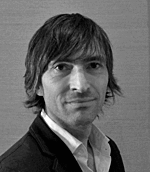
Craig is a figure well known to many in the world of dentistry particularly because of his work with the Faculty of General Dental Practice FGDP UK including a position on its national board and also his involvement on the national Committee of the Association of Dental Implantology (ADI).
He has owned a private practice in Leeds, UK, for 14 years where his work is now exclusively involved in treating dental implant referrals as well as providing training and mentoring as an International Team for Implantology (ITI) accredited mentor.
Craig was one of the first dental implantologists in the UK to embrace the routine use of cone beam computed tomography (CBCT) and one of the first in the world to commit to a fully integrated digital workflow.
He regularly travels internationally to learn from the most pioneering colleagues and he lectures throughout the UK, particularly in digital treatment planning, at various dental schools, MSc programmes and ADI and ITI study groups. He is an ITI study club director and has examined for the FGDP (UK) for over ten years.
Qualifications: BChD MFGDP (UK) DPDS
Osseointegration is the biological process that describes the permanent fixation of an anchor within the bone of the jaws. This anchorage can then be utilised to support the replacement for the missing dentition, to allow for functional and aesthetic rehabilitation. The principles of osseointegration are outlined in conjunction with the clinical methodologies required to produce predictable results.
Where the alveolar envelope is not sufficient to adequately cover and completely support the planned implant, then one or more augmentation techniques may be necessary to enable implant placement. These techniques range from major bone grafts to allow subsequent implant placement, through to minor techniques designed to optimise aesthetic outcomes. In addition, the various sources of graft materials will be considered, together with the range of handling properties.
Dental implants are now part of mainstream dentistry with predictable and high success measured both in terms of patient satisfaction and clinically. However, the two peri-implant disease entities of peri-implant mucositis and peri-implantitis, first proposed in a European consensus report in 1994, must be appreciated and addressed as they contribute the major complications that result in implant failure.
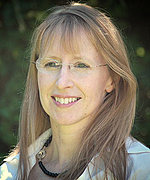
Professor Nicola West is a graduate of the University of Wales College of Medicine (Cardiff). After attaining her fellowship from the Royal College of Surgeons of England, Nicola gained her PhD from the University of Wales (Cardiff).
Nicola gained her chair in Periodontology at Bristol Dental School, where she conducts research, leading the Clinical Trials Unit and attracting substantial industrial funding.
Current research interests include: developing research methodologies, periodontal conditions, bone augmentation and peri-implant lesions, the scientific evaluation of oral health care products, tooth wear, dentine hypersensitivity and tooth whitening. She is also an Honorary Consultant in Restorative Dentistry.
Nicola has maintained in parallel, a thriving private referral practice in the heart of Bristol, and has established a reputation for aesthetic treatment of complex restorative cases involving periodontal, implant and prosthodontic treatment.
Nicola lectures regularly in the national and international forum, is on the editorial board of the Journal of Dentistry, Secretary of the British Society of Periodontology and regional postgraduate tutor for the British Society of Periodontology in the South West of England. Nicola leads the periodontology, bone augmentation and peri-impantitis Unit in the Bristol Dental School Masters Programme. She is also a member of the Association of Dental Implantology and a member of the International Team of Implantology and of the International Standards Committee.
Qualifications: BDS, FDS RCS, PhD, FDS (Rest Dent)
This presentation will describe the role that the Dental Technician plays in framework design and fabrication from a single unit implant to a full arch reconstruction.
An explanation will be provided of the types of abutments that are available, their design and how we create the correct emergence profile in the laboratory.
The aesthetic materials we use to restore soft tissue defects will be described and how to create aesthetic excellence.
Aesthetics, form and function are all essential ingredients for the success of our restorations. It is pointless making beautiful restorations if the patients are unable to clean them.
The most hygienic design of the implant prosthesis will be described along with the treatment planning protocols.
Planning for maintenance and repair of the restoration will also be covered
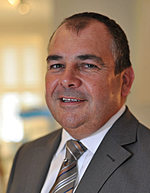
John Wibberley started his career as one of the first full time students studying for a Certificate in Dental Technology, qualifying in 1978 from Manchester Polytechnic. John’s first appointment was in the Department of Prosthodontics at Manchester Dental Hospital.
Eight months later he then moved to North Manchester General Hospital gaining more experience in a maxillofacial unit. After gaining his advanced City and Guilds in crown and bridgework John joined the RAF dental branch in 1980. Leaving the RAF in 1982, John gained valuable commercial experience in several different commercial laboratories and hospitals until eventually opening his own laboratory Portland Ceramics in August 1985, specialising in implantology and high quality restorations. In March 2001 Boots Dental Care acquired Portland Ceramics.
John qualified as a Clinical Dental Technician in April 2013 and now runs his own practice.
John has travelled extensively attending courses in France, Germany, Italy and Holland and has visited the USA over forty times attending courses and conferences. He has also presented to the Association of Dental Implantology, the British Academy of Aesthetic Dentistry and Nobel Biocare World Conference in Las Vegas May 2007.
In June 2005 John was awarded a Fellowship of the British Institute of Dental and Surgical Technologists.
Qualifications: CDT FBIDST
The presentation is aimed at members of the whole support team in implant dentistry.
Many individuals are prescribed medication in order to treat illness or medical conditions. Whilst few of these are completely contra-indicatory to dental implant treatment, it is imperative that a comprehensive understanding of commonly prescribed medications, their modes of action and interactions and consideration of their implications during implant treatments is appreciated to ensure best patient care.
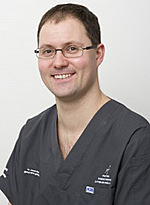
I am a general dental practitioner of fifteen years experience with interests in conscious sedation, anxiety relief techniques, and implant dentistry. I have been carrying out sedation for ten years, having undergone training in the Sedation Department of Newcastle Hospital over a six-month period as an S.H.O in 2005. I subsequently completed the Diploma in Conscious Sedation, and the Certificate in Implant Dentistry at Newcastle Dental School. I have worked closely for a number of years with colleagues in the Glasgow area in providing sedation support for advanced surgical implant dentistry including sinus grafting and full mouth implant placement.
Qualifications: MPhil (Ncl) BDS (NU Irel) Dip Con Sed (Ncl) Cert Impl (Ncl)
The aim of this workshop is to enable the Dental Hygienist or Dental Therapist to confidently manage the implant patient through long term monitoring and maintenance.
The key to successful support and management of the implant patient is through the development of Maintenance Protocols tailored to each patient, therefore developing a Bespoke Maintenance Programme.
During this workshop delegates will have the opportunity to anticipate real life scenarios through various case study discussions. These case studies will demonstrate and reiterate the necessity of the Dental Hygienist or Dental Therapist in the continuing care pathway of the implant patient. Delegates will develop an understanding of how to implement these Maintenance Protocols at any point in their patients’ care, be it pre-implant surgery, inherited patients or for those patients who arrive in our surgeries through Direct Access. With the advent of Direct Access the Dental Hygienist and Dental Therapist must be aware of obtaining the patient’s consent and working within their Scope of Practice. The GDC advises that all registrants work within their scope and competency and this workshop will provide Dental Hygienists and Dental Therapists with the skills to be confident that they are able to “care for implants and peri-implant tissues” as stated in the GDC Scope of Practice document.
The workshop will also focus on the use of the ADI Monitoring and Maintenance Algorithms and will demonstrate to the Dental Hygienist or Dental Therapist when to make the appropriate recommendations for referral during their patients’ care. A whole team approach is necessary for the long term care of the implant patient and this workshop will also highlight and discuss the use of Oral Health Educators as an adjunct to successful long-term maintenance.

Karen qualified from Edinburgh in 1994 and immediately moved to Nottingham where she worked in a mix of NHS and Corporate practices over the years. She now divides her time between two Specialist Referral practices: The Campbell Clinic in West Bridgeford, Nottingham and Refine in Alfreton, Derby. Her role in both practices is to provide NSPT for referred periodontal patients, and both pre-op and maintenance for implant patients. Five years ago Karen developed protocols based on OH and Risk for all patients undergoing implant treatments.
Karen is a speaker for the International Team for Implantology (ITI) and has lectured at International Congress and study club level. Karen spoke at The ADI’s Members’ National Forum last year. Karen regularly writes and lectures on the subject of Implant Maintenance and Complications and runs Study Clubs for Hygienists and Therapists through the Campbell Academy. She is also a Key Opinion Leader for Dentsply and delivers “hands on” courses for dentists and hygienists. Karen is on the editorial advisory board of DH&T magazine, a magazine designed for Dental Hygienists and Therapists.
As well as the ITI and ADI, Karen is also a member of The British Society of Periodontology and The British Society of Dental Hygienists and Therapists.
Qualifications: RDH
With an ever-expanding proportion of patients receiving implant therapy the management of peri-implant diseases is fast becoming an integral part of our practices. This workshop will focus on our scientific understanding of the aetiology and management of peri-implantitis. The assessment of the health of tissues around implants, using periodontal parameters, is important in diagnosis so that clinical intervention can be applied at an early stage. The pathological and histological features of the peri-implant lesions will be discussed and compared to those observed in destructive periodontal disease. The identification of important aetiological factors such as smoking and periodontal disease has an influence on our treatment planning as well as the strategies used in the treatment of peri-implantitis. An evidence-based approach to the maintenance of these conditions is essential. Although peri-implant mucositis is relatively straightforward to manage the treatment of peri-implantitis has proved to be difficult and unpredictable where the treatment approach has been largely a surgical one. Although there is to date little consensus on the best approach a number of surgical techniques using both a regenerative as well as pocket elimination techniques have been reported on. These will be discussed together with the supporting evidence.
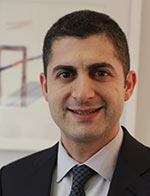
Kia Rezavandi is a registered specialist in Periodontics. He qualified from the Royal London Hospital in 1993. He gained his Masters in Periodontology from the University of London in 1997 and Membership in Restorative Dentistry of the Royal College of Surgeons in 2000. He has been in practice restricted to Periodontics since 1997 and has previously held a position as specialist clinical teacher at King’s College. He has been involved in implant dentistry since 1998 and has a wide range of experience in the surgical aspect of implant treatment. He lectures regularly on periodontics and implants and has been a guest lecturer and contributor to a number of masters programmes.
Qualifications: BDS MSc MRD RCS (Eng)
This workshop will look at the role of radiographs post implant placement. The workshop will look at the different radiographs which can be used to evaluate implants, Selection Criteria, the limitations of these radiographs and the radiographic features indicating success or failure. Selection criteria for radiographs will also be discussed. The session will also demonstrate the importance of developing a systematic approach to radiographic evaluation and the normal anatomical structures which may be encountered during radiographic evaluation.
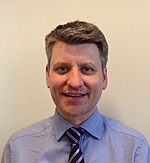
Donald Thomson graduated in Dentistry from the University of Edinburgh. After vocational training and a number of hospital posts, he completed training in Dental and Maxillofacial Radiology in Dundee and Glasgow Dental Hospitals. He has been a Consultant in Dundee Dental Hospital since 2006 where his main interests are Cone Beam CT and salivary gland imaging. Donald has extensive experience training undergraduate and postgraduate Dentists and Dental Care Professionals in the UK and overseas. He is a Dental Regional Advisor and the convenor of MFDS courses for the Royal College of Surgeons of Edinburgh and a member of the Council of the British Society of Dental and Maxillofacial Radiology.
Qualifications: BDS FDS RCSEd FDS RCPSG DDR RCR
"Not my implant, not my problem"...a common misconception amongst dentists who choose to focus on the parts of the mouth they are familiar and confident with. As hygienists and therapists the role of caring for these restorations often falls to you. This lecture and practical hands on session explores the similarities and differences between teeth and implants in both health and disease. It also investigates the stark differences between the various types of implant. Correct examination of dental implants and the appropriate instrumentation and maintenance protocols will be discussed and demonstrated. After this interactive workshop you will be confident to say “I shall, I will, I can” and you can tell your dentist too!

Adam is the Director of Clinical Services at Albert Place Dental Referral Centre. He is a highly trained and skilled dental implantologist backed by a broad and strong academic knowledge of the subject. Adam holds several postgraduate diplomas and a Masters degree in the subject. A renowned lecturer, Adam held an honorary lectureship for 3 years at Salford University, lecturing and examining students during their Masters Degree course in Implantology. He is a surgical and restorative mentor for the Straumann implant system and has lectured for Dentsply Astra tech and Geistlich Bio materials on bone grafting techniques. Adam is also active in the politics of dentistry and has gained a position on the Committee of the Association of Dental Implantology representing the North West of England. He received exceptional feedback from the 2013 ADI National Congress and as such has been invited to return for what promises to be an equally enthusiastic lecture and hands on session.
Qualifications: BDS PGDip MSc
Smoking is a known risk factor in peri-implant disease, periodontal disease, oral malignancy and poor wound healing. We have a duty of care to ensure that patients are aware of the risk factors associated with implant placement and to offer appropriate and effective smoking cessation support and/or referral to those who indicate they would like to quit. Studies demonstrate that of the 10 million people in the UK who smoke, 70% would like to quit.
As more evidence emerges to link lifestyle factors and systemic disease to oral disease; it is becoming increasingly apparent that advice on plaque control is not enough to help many patients. Tobacco is estimated to be as addictive as heroin or cocaine and patients who use tobacco products need support in a completely different way to those who are improving their oral hygiene habits. Dental professionals are unique in their skills to be able to motivate, counsel and support patients as it is something they endeavour to do on a daily basis. They have access to patients who would otherwise not be seeing any healthcare professional and have the opportunity to discuss an individuals personal health and lifestyle choices.
Studies demonstrate that "quit attempts" are considerably more effective with a combination of behavioral support from a healthcare professional and the use of pharmaceutical product. If DCPs can become confident in approaching and supporting patients in an effective quit attempt then the survival rate of implants will increase. Simple smoking cessation programmes and good referral pathways are essential in practices offering implant placement and maintenance therapy. In addition a protocol of thorough, regular soft tissue examination on all patients can aid early detection of oral malignancy and should be in place in all dental practices.

Jo qualified as a hygienist from Leeds in 1988 and has worked in general practice ever since. She currently works in practices that place implants and provide post implant maintenance. Jo has additional qualifications in teaching, mentoring and counseling. She has also done smoking cessation training through the NCSCT to become a smoking cessation advisor. She is passionate about the role that health professionals should play in supporting patients to consider quitting tobacco use as part of their oral health care and was shortlisted for the Dental Hygienist and Therapy awards for her work with smoking cessation within the dental profession. She writes articles for the dental press and lectures throughout the UK to dental professionals. Her presentations include the development of key skills in supporting tobacco users to consider quitting and means of developing further skills through directed learning.
Qualifications: RDH FAETC
Discover the Secrets to creating a High Performance Perfect Team in your Dental Practice. The best Dental Practices all possess high performance teams and they have the added advantage. In this one hour workshop, Ashley Latter will share proven strategies to creating a high performance team, one that signs off the same hymn sheet and gives their patients a world class experience.
Here are some of the outcomes you will achieve:
- The importance of attitude amongst the team. Learn to create a more positive attitude of success and accomplishment, every time, every day.
- How to improve communication amongst the team, so that the baton never gets dropped.
- Discover the advantages of the group huddle and preparation, before the patient comes through the door
- The importance of Human Relation Skills in a High Performance Team
- Discover the four personality styles and the importance of adapting your communication style, when communicating with each other.
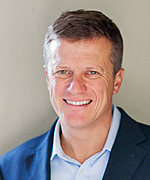
Over the last 18 years, over 7000 delegates have now taken his Two Day Ethical Sales and Communication Programme. This programme is legendary in the UK and Irish Dental World and is probably the most sought after programme in Dentistry today. In 2014 Ashley is delivering his programmes in the USA and Australia.
Apart from the Ethical Sales & Communication Programme, Ashley delivers other programmes including creating a World Class Patient Journey, Creating a High Performance Team and Ringing the Changes How to Turn Telephone Enquiries into Appointments. Ashley also works with a very forward group of dentists and Orthodontists on the Serious Players Club, which is an Entrepreneur group. In March 2013, Ashley got voted number 27 Most Influential Person in UK Dentistry.
Ashley is the author of Helping Patients to say YES and Don’t Wait for the Tooth Fairy - How to Communicate Effectively and Create the Perfect Patient Journey and You are Worth it - Talk money with confidence and achieve the income your services deserve. He has also contributed to the Dental Masters Series.
In short, he is simply the best at helping dentists and their teams connect better with other people and grow their practice profits.
